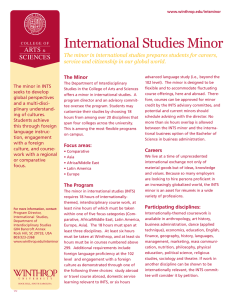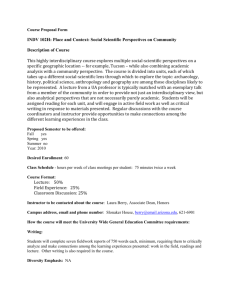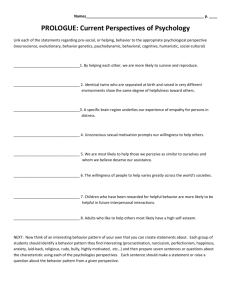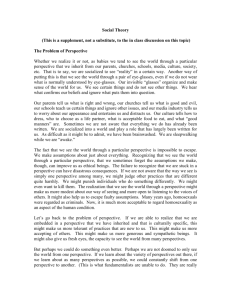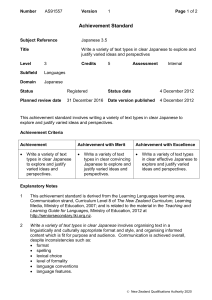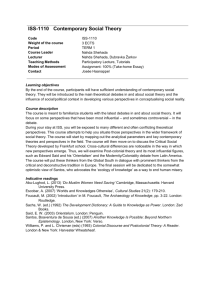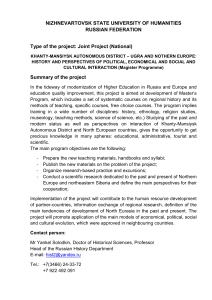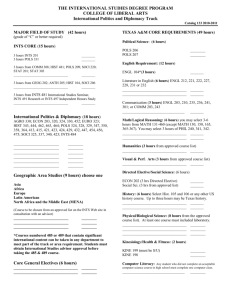Addendum
advertisement
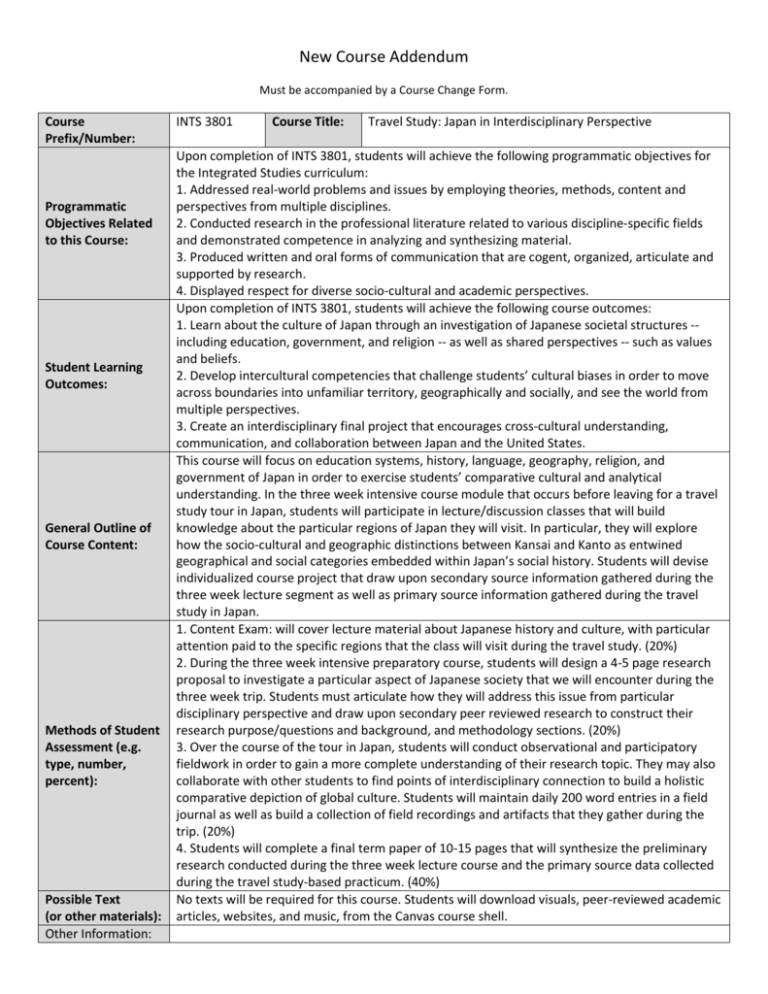
New Course Addendum Must be accompanied by a Course Change Form. Course Prefix/Number: Programmatic Objectives Related to this Course: Student Learning Outcomes: General Outline of Course Content: Methods of Student Assessment (e.g. type, number, percent): Possible Text (or other materials): Other Information: INTS 3801 Course Title: Travel Study: Japan in Interdisciplinary Perspective Upon completion of INTS 3801, students will achieve the following programmatic objectives for the Integrated Studies curriculum: 1. Addressed real‐world problems and issues by employing theories, methods, content and perspectives from multiple disciplines. 2. Conducted research in the professional literature related to various discipline‐specific fields and demonstrated competence in analyzing and synthesizing material. 3. Produced written and oral forms of communication that are cogent, organized, articulate and supported by research. 4. Displayed respect for diverse socio‐cultural and academic perspectives. Upon completion of INTS 3801, students will achieve the following course outcomes: 1. Learn about the culture of Japan through an investigation of Japanese societal structures -including education, government, and religion -- as well as shared perspectives -- such as values and beliefs. 2. Develop intercultural competencies that challenge students’ cultural biases in order to move across boundaries into unfamiliar territory, geographically and socially, and see the world from multiple perspectives. 3. Create an interdisciplinary final project that encourages cross-cultural understanding, communication, and collaboration between Japan and the United States. This course will focus on education systems, history, language, geography, religion, and government of Japan in order to exercise students’ comparative cultural and analytical understanding. In the three week intensive course module that occurs before leaving for a travel study tour in Japan, students will participate in lecture/discussion classes that will build knowledge about the particular regions of Japan they will visit. In particular, they will explore how the socio-cultural and geographic distinctions between Kansai and Kanto as entwined geographical and social categories embedded within Japan’s social history. Students will devise individualized course project that draw upon secondary source information gathered during the three week lecture segment as well as primary source information gathered during the travel study in Japan. 1. Content Exam: will cover lecture material about Japanese history and culture, with particular attention paid to the specific regions that the class will visit during the travel study. (20%) 2. During the three week intensive preparatory course, students will design a 4-5 page research proposal to investigate a particular aspect of Japanese society that we will encounter during the three week trip. Students must articulate how they will address this issue from particular disciplinary perspective and draw upon secondary peer reviewed research to construct their research purpose/questions and background, and methodology sections. (20%) 3. Over the course of the tour in Japan, students will conduct observational and participatory fieldwork in order to gain a more complete understanding of their research topic. They may also collaborate with other students to find points of interdisciplinary connection to build a holistic comparative depiction of global culture. Students will maintain daily 200 word entries in a field journal as well as build a collection of field recordings and artifacts that they gather during the trip. (20%) 4. Students will complete a final term paper of 10-15 pages that will synthesize the preliminary research conducted during the three week lecture course and the primary source data collected during the travel study-based practicum. (40%) No texts will be required for this course. Students will download visuals, peer-reviewed academic articles, websites, and music, from the Canvas course shell. Areas in bold are required.
